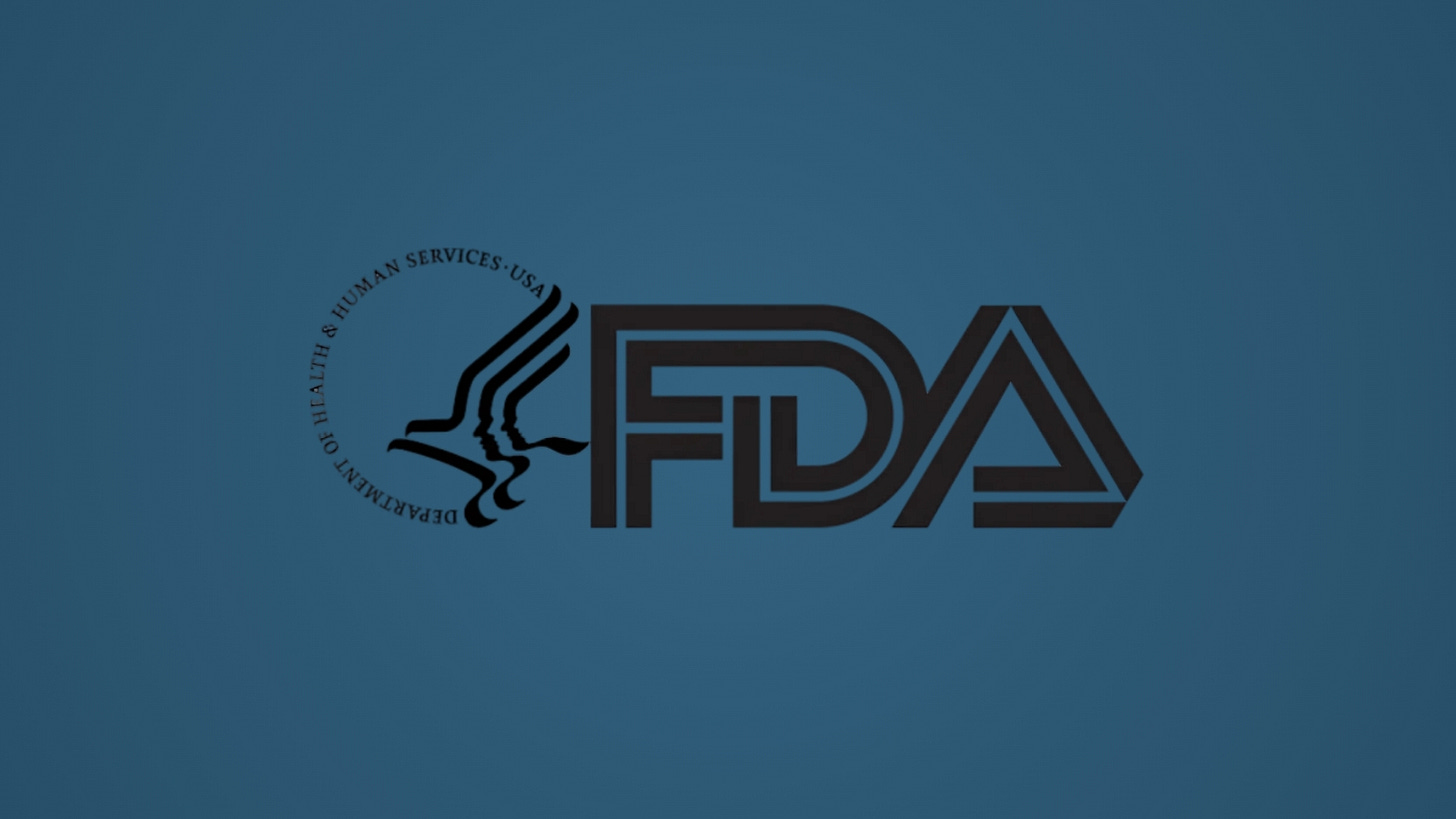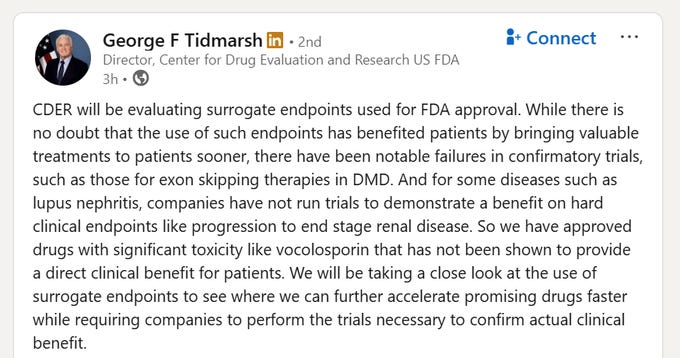A Quick Explainer on the Tidmarsh Drama at the FDA
A high-stakes power struggle inside the FDA has spilled into public view.
The following explainer synthesizes reporting from two recent articles in Endpoints News: here and here.
CDER Director George Tidmarsh’s abrupt resignation—now seemingly retracted—has exposed lawsuits, internal feuds, and leadership chaos at an agency already reeling from layoffs and controversy.
In case you’re out of the loop, on Sunday, CDER Director George Tidmarsh resigned after being placed on administrative leave and becoming the subject of an internal investigation into allegations that he abused his position to settle a personal score with a former business associate.
By Monday, Tidmarsh appeared to change course. In a virtual meeting with senior staff, Office of New Drugs (OND) Director Mary Thanh Hai relayed that Tidmarsh had told colleagues he was on administrative leave—but “not resigning.” Speaking later with Endpoints News, Tidmarsh confirmed that he was reconsidering his decision and intended to “fight” the investigations into his conduct.
An HHS spokesperson clarified that Tidmarsh’s resignation “took effect immediately upon receipt by the FDA on Sunday morning,” and that his employment records were being updated to reflect his departure.
The allegations and lawsuit
At the center of the controversy is a defamation lawsuit filed by Aurinia Pharmaceuticals, which alleges that Tidmarsh used his FDA position to exact revenge on Kevin Tang, Aurinia’s chairman, with whom Tidmarsh had previously clashed while CEO of La Jolla Pharmaceutical.
According to the suit, Tidmarsh’s (now deleted) LinkedIn post criticizing Aurinia’s lupus drug triggered a stock drop of more than 20 percent, erasing over $350 million in market value.
The complaint accuses Tidmarsh of maintaining “a longstanding personal vendetta” and even attempting to “extort” the company through his regulatory influence.
Tidmarsh has not directly addressed the claims but acknowledged that his LinkedIn comments prompted the complaint to the HHS Office of the Inspector General (OIG) that ultimately led to his administrative leave.
HHS confirmed his leave and resignation “after the Office of the General Counsel and the Office of the Inspector General were notified of serious concerns about his personal conduct.”
Accusations of an internal power struggle
Tidmarsh has alleged that Vinay Prasad, director of the CBER, orchestrated his ouster. “It is totally Vinay trying to take me out,” he told Endpoints News. Prasad did not respond to requests for comment.
The two have reportedly sparred for months over the Commissioner’s National Priority Voucher program, which provides fast-track reviews to products that meet administration priorities such as domestic manufacturing or drug-price reductions. Tidmarsh claimed he questioned how vouchers were awarded and accused Prasad of overruling staff decisions without legal justification.
Tidmarsh also said he warned Commissioner Marty Makary’s office weeks earlier that Prasad should “not be in charge,” citing concerns about agency direction.
A year of chaos at the agency
The episode adds to what Endpoints described as a “reality TV drama” year for the FDA. Alongside Tidmarsh’s troubles, the agency has reportedly endured thousands of staff firings, allegations that Commissioner Makary personally intervened in drug rejections, and ongoing controversies surrounding anti-vaccine actions.
Prasad himself previously resigned from the agency amid conflict involving Sarepta Therapeutics, only to later return to CBER.
The confusion around Tidmarsh’s exit also echoes a recent standoff at the CDC, where questions arose over who had the authority to dismiss then-Director Susan Monare. For now, Mike Davis, Tidmarsh’s deputy, is expected to fill in “unofficially” while the agency sorts out its leadership crisis.
Further reading
F.D.A. Drug Unit Chief Resigns, and Is Sued by Drug Company (NY Times)
Tidmarsh Waffles on Resignation, Will Fight To Clear Name (BioSpace)
Chaos at the FDA leaves staffers disturbed, ready to leave (Axios)
Experts worry FDA’s credibility is being shredded by scandal and ‘soap opera’ (STAT)
Who is The FDA Group?
The FDA Group helps life science organizations rapidly access the industry's best consultants, contractors, and candidates. Our resources assist in every stage of the product lifecycle, from clinical development to commercialization, with a focus on Quality Assurance, Regulatory Affairs, and Clinical Operations.
With thousands of resources worldwide, hundreds of whom are former FDA, we meet your precise resourcing needs through a fast, convenient talent selection process supported by a Total Quality Guarantee. Learn more and schedule a call with us to see if we’re a fit to help you access specialized professionals and execute your projects on time and on budget.




